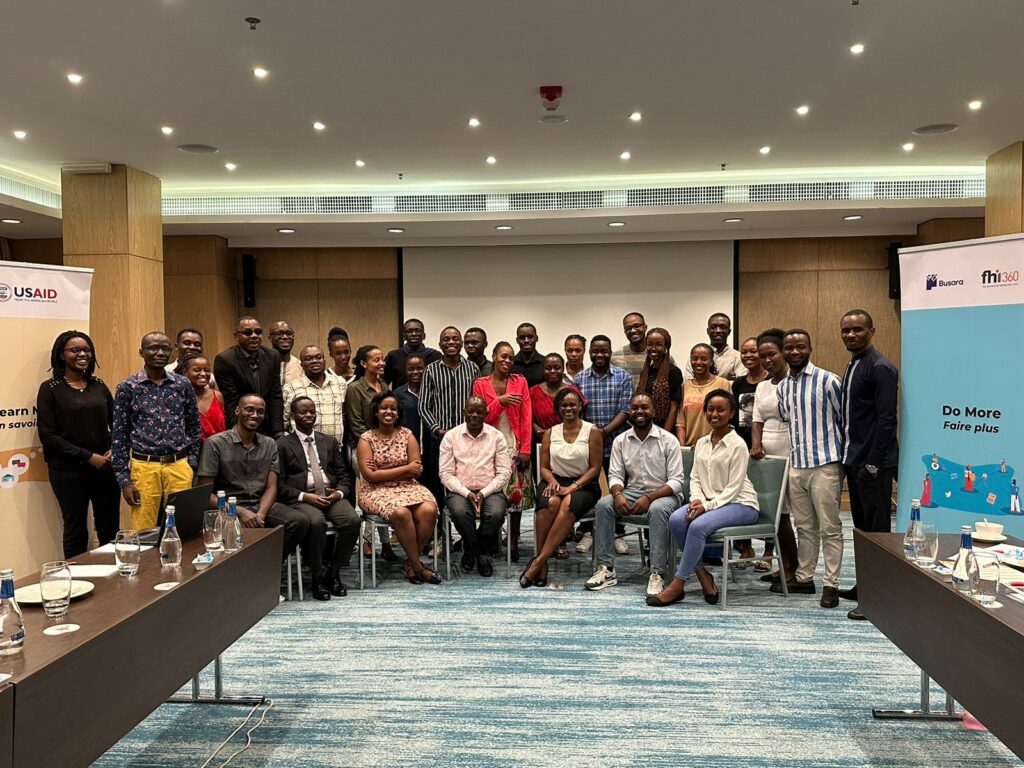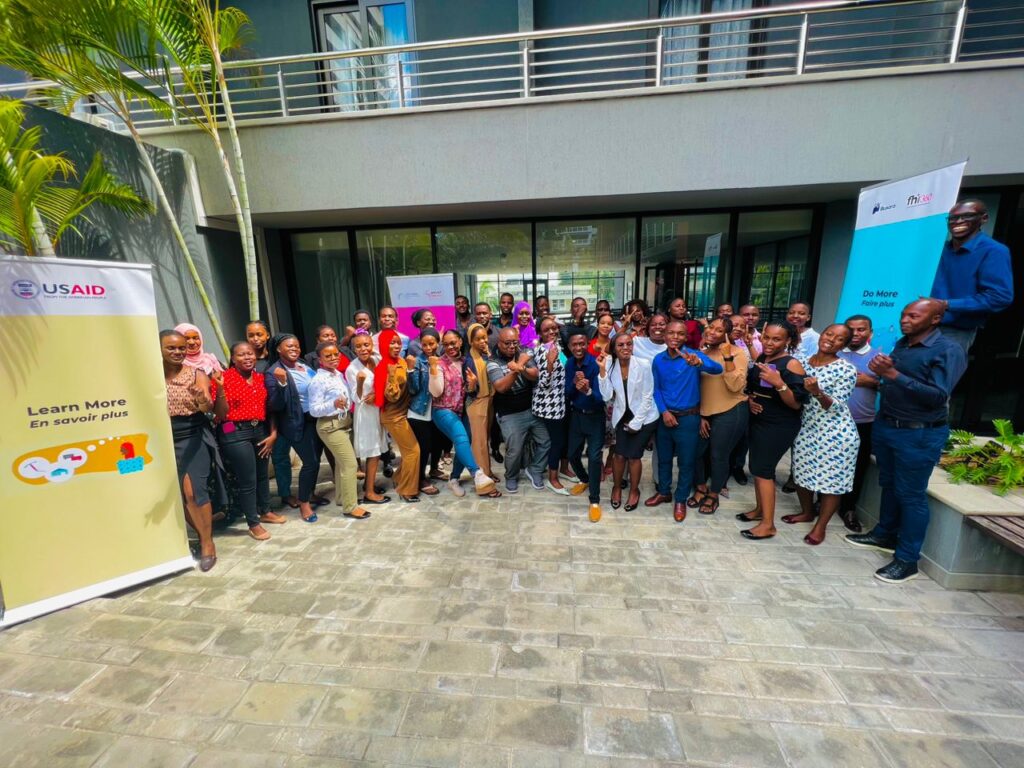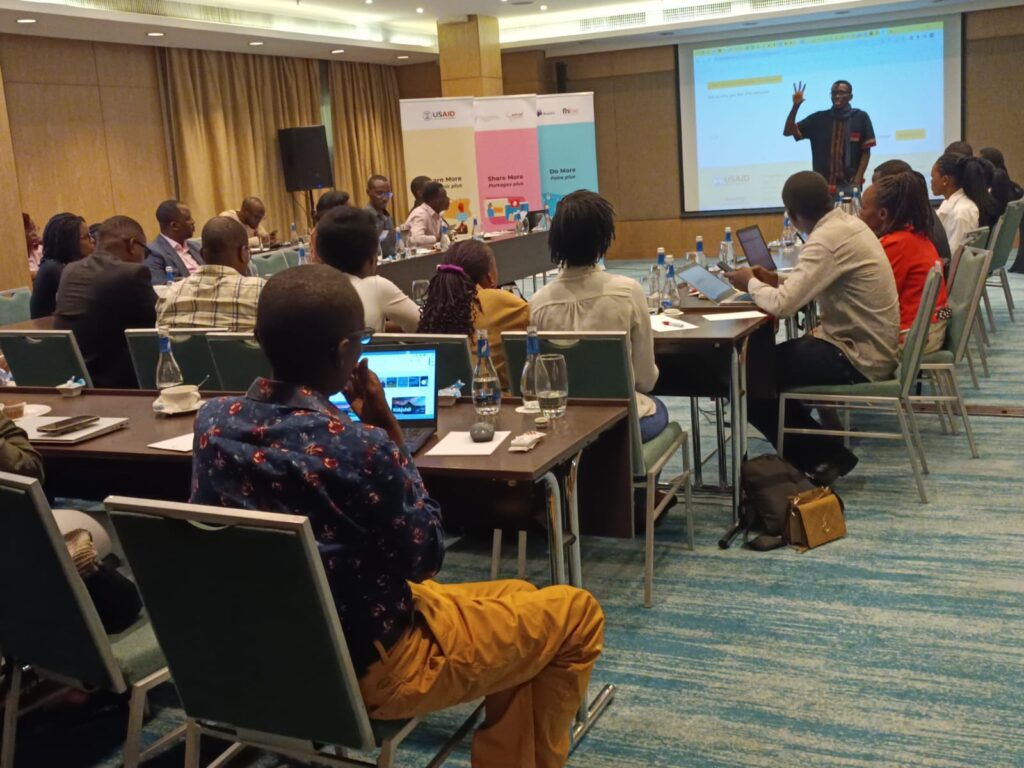Meet Collins Otieno
Knowledge SUCCESS' new East Africa Knowledge Management Officer

Collins Otieno recently joined Knowledge SUCCESS as the Knowledge Management Officer for our East African region. Collins has a wealth of experience in knowledge management (KM) and a deep commitment to advancing effective and sustainable healthcare solutions. Since joining us, he has taken on the role of co-chair for the NextGen RH community of practice. In partnership with the FP2030 Anglophone Focal Point Convening, he’s hosted sessions focusing on adolescent and youth sexual and reproductive health (AYSRH) and shared experiences on developing youth-led family planning programs using the ‘fail fest’ approach.
In June, Collins helped to lead Knowledge SUCCESS’s first in-person gathering in Kampala, Uganda, for TheCollaborative members. TheCollaborative is a community of practice for FP/RH professionals in East Africa. Established in 2019 by our East Africa team (led by Amref Health Africa), TheCollaborative seeks to foster awareness of KM’s value and serves as a valuable platform for networking, skill-building, and discussions on equity in FP/RH programming. Collins has facilitated similar knowledge exchange events in Rwanda and Tanzania, discussing youth-led organizational challenges in FP/SRH, the intersection of the climate change’s impact in SRH, and the government’s role in Population, Health, and Environment (PHE) regional agendas.
We interviewed Collins recently to learn more of his background and the impact he hopes to make for the dissemination of sustainable knowledge sharing and capacity strengthening on areas such as social behavioral change (SBC) and demand generation throughout the East African region.

When did you join Knowledge SUCCESS?
I joined in April 2023.
Tells us about your academic and career background
I have a degree in Design with a major in graphics design and a Master’s degree in Education for Sustainability. I have certificates in program management, human-centered design, and organizational capacity assessment. So, in the field of family planning (FP) and sexual and reproductive health (SRH), you would say I am an outlier.
In the development workspace, I first worked in the communications role, developing information, education and communications messages before I went into full-time policy and civic youth advocacy for good governance. Later, working with the Johns Hopkins Center for Communication Programs in the (Tupange) Kenya Urban Health Reproductive Initiative, I delved into behavior change communication and demand generation for family planning services. It is here that I started working on capacity strengthening and technical assistance programs for youth-focused and small organizations. Later, I worked with Planned Parenthood Global Africa Regional Office and gained experience in grant management and program monitoring. I honed my skills in regional and multi-country programming, partner capacity strengthening, and expanding access to rights-based sexual and reproductive health information and services. It is this diversity of skills and experience that I would say led me into the knowledge management space.
What informs your passion for family planning and sexual and reproductive health?
Probably it has got to do with how I see it as a simple (yet seemingly complex in practice) solution to helping men, women and adolescents define and set life goals. SRH is one of those areas where choices are so nuanced and individuals often take a long time to make decisions yet the impact on their lives is huge and sometimes immediate. As a person, I am intrigued by the desire to cause social change and as a man, I consider SRH as an area we have to be intentionally involved to have better conversations about sexual health, lest the conversation happens without us.
What are you excited about most in your role as the East Africa Knowledge Management Officer for Knowledge SUCCESS?
I am excited about the opportunity to be involved in introducing and applying knowledge management practices in FP/SRH programs. I am learning approaches and techniques and unpacking tools to improve programs that impact people’s lives in the East Africa region. I used to be a recipient of these services in my previous work; today I am part of the team providing the service. That’s exciting.

Any challenges you envisage encountering in this role?
I have been involved in the work of Knowledge SUCCESS in East Africa as an active participant in the Family Planning Community of Practice. Today, however, in my new role, I am part of the team that makes things happen behind the scenes in the Community of Practice. This can sometimes be overwhelming. Secondly, my task will be to demonstrate the relevance and value of knowledge management in the FP/SRH programs in the region, which may sound like an obvious take, but it requires a lot of effort. I am also learning as I do this work. It is a challenge I see ahead.
As a Knowledge Management Officer, what sort of impact do you hope to make?
I want to see people being intentional in using and applying knowledge management practices in FP/RH interventions. Knowledge management should not be at the periphery or one of those things one does last. Knowledge SUCCESS considers knowledge management a People, Processes, and Platforms practice. So, I want to see professionals and organizations across East Africa integrate knowledge management into their FP/SRH programs. I hope that we will have a lot of content about FP/SRH programs developed in Africa. That we will share many lessons and experiences from the continent resulting from our being intentional and actively documenting, packaging and effectively disseminating knowledge.
Learn more about our work in East Africa and view the full team on our East Africa regional page.




